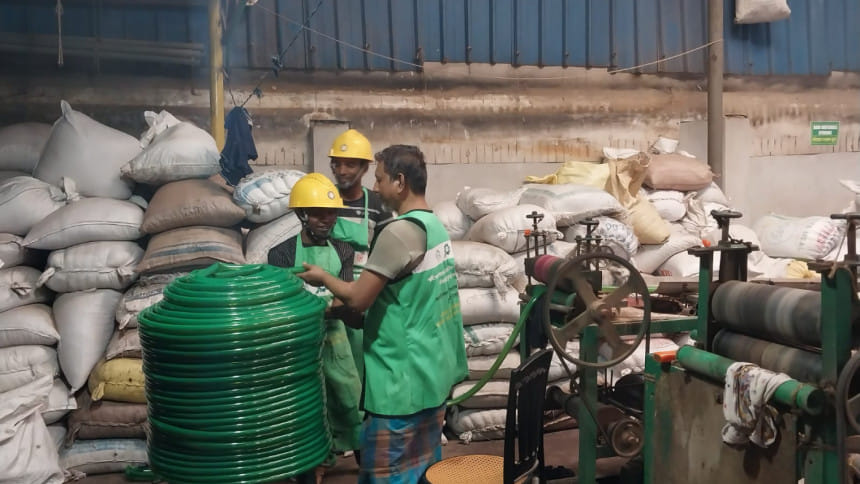Amidst a plastic pollution crisis, locals living near Buriganga take up recycling projects

A visit to the banks of the Buriganga River offers a stark glimpse into the plastic pollution crisis in Bangladesh.
Plastic waste often overshadows the presence of water, a troubling symbol of the environmental challenges the nation faces. With its rapid urbanisation, Bangladesh has seen a significant rise in plastic usage and pollution.
The World Bank highlights the critical need to manage this issue as part of the country's journey towards becoming an upper-middle-income nation by 2031. The World Bank also underscores the necessity for pragmatic action plans to tackle plastic pollution and promote green growth.
The issue isn't isolated to one area. Areas like Kamrangirchar, along with adjacent places, have become hotspots for dumping waste. A recent visit to Shyampur, Kamrangirchar, and Lalbagh revealed a community eager to overcome this challenge, yet lacking sufficient knowledge about effective waste management and personal responsibility in this crisis.
Amidst this environmental concern, there are emerging efforts to repurpose plastic waste. Yusuf Ali, a local entrepreneur from Kamrangirchar, has started manufacturing various products from recycled plastic, including toilet pans and PVC pipes, which are sold nationwide.
He proudly states that his factory has evolved into an environment-friendly establishment, with improved product quality and worker safety, thanks to regular training.
Similarly, Nazir Hossain has tapped into the abundant plastic waste to produce lightweight, affordable tiles, which are easier to transport and install than traditional clay or ceramic tiles.
His innovative approach not only addresses waste management but also provides an economical alternative in the construction industry.
Ashfaqur Rahman Asha, a project manager at the Resource Integration Center (RIC), emphasised the urgency of tackling the uncontrolled trade of plastic products and waste.
He advocated for environmentally friendly recycling processes, noting the significant impact of plastic pollution on the environment, biodiversity, and ecosystems.
RIC, with support from PKSF and funding from the World Bank, has implemented a project to establish small and medium-sized plastic recycling industries that are economically viable and environmentally responsible.
They offer training in environment-friendly practices, personal and fire safety, and advanced technology for producing quality recycled products.
In Dhaka, the situation is particularly acute. The city's annual per capita plastic consumption is over three times the national urban average, at 22.25 kg.
About 646 tons of plastic waste are collected daily in Dhaka, accounting for 10 percent of the country's total waste generation. However, only 37.2 percent of Dhaka's plastic waste is currently recycled.

 For all latest news, follow The Daily Star's Google News channel.
For all latest news, follow The Daily Star's Google News channel. 



Comments